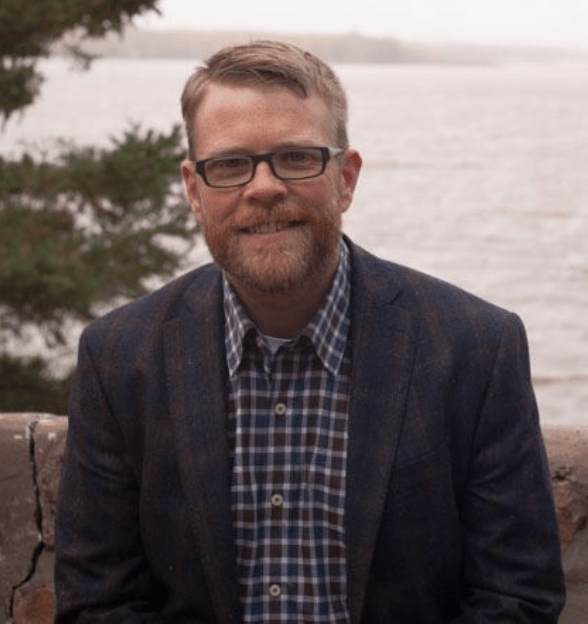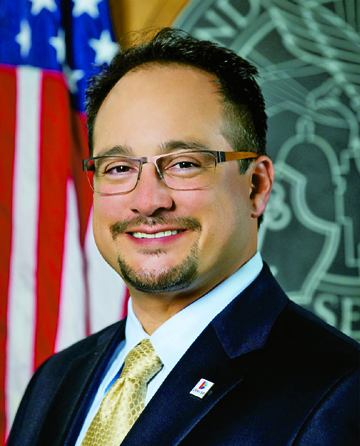This podcast interview is available on iTunes, Stitcher, Player FM, and right here:
Jim Paine ran into a surprise the day of his second-term swearing in: a stalemate on the Superior council, as no one could claim the council presidency. He discusses why some councilors would not allow him to break a tie, plus gives insight into the student councilors who attend the meetings.
—
Q: Superior has a coterie of youth councilors–students–who sit in the front row of the council dais every meeting. But I have never seen them say or do anything. They just sit quietly for an hour or more. Is this some kind of alternative detention that you’ve worked out with the school district?
A: You’re the first person to ever ask me about them, but I’m glad you did! This program should be very valuable. I’m going to confess to a little bit of angst here that they don’t participate more. I’ve been in that role–not as a high school student, but part of my local political career began because when I was a university student here, I pushed for more student representation in local government. The Superior mayor at the time laughed me out of his office.
Q: Wow.
A: I was working at a bar at the time and I stormed up and down the bar that night raging about the mayor. It turned out the county board chairman was sitting at the bar and invited me to invent a student seat for the county board, which I did. So I wish that they did participate more. At the county board, those students would let us know everything that was going on in the high school, even if we didn’t care at all! Quite frankly–I don’t think I’ve ever said this locally–I wish they would jump right into the debates. They have working microphones like everybody else. If they ever hit that button in the middle of a hot debate, I’d recognize them immediately.
Q: These kids, these youth councilors, do they have some sort of expectation of what they’re supposed to do in the council meeting?
A: There probably is a misunderstanding between us and them. They’re selected by their high schools to participate. For them, it’s largely a learning exercise. They’re there to watch, listen, and learn. What I’ve communicated to them is they should act as representatives. They should speak up. Now, in their defense, it’s an intimidating environment. Our council debates–if you say something, you’re likely to be challenged. I think they’d get a little bit of leeway being kids, but I know they have opinions.

Q: On April 16, you and half of the council were sworn in to new terms. The next order of business was to elect a council president–someone to fill in for you and assign councilors to committees. There were two candidates for the job: Ruth Ludwig and Brent Fennessey. The result of the vote was Fennessey had five votes, Ludwig had four, and there was one abstention. No one clinched the six-vote majority. Did you know that would happen?
A: The real behind-the-scenes politics there is Councilor Fennessey had the presidency largely locked up months before if there was no change in the council at the elections. There was no change. But one of the councilors who had largely been committed to Councilor Fennessey flipped. He started talking to Councilor Ludwig and decided to vote for Ludwig. That led Councilor [Dan] Olson–who is very close to Councilor Ludwig, but he is much closer politically to Councilor Fennessey–it was fine for him to vote for Councilor Ludwig as long as Fennessey still had six votes. With one of Fennessey’s votes flipping to Ludwig, the vote was 5-5. If it had gone 5-5, I would have voted for Councilor Ludwig and everybody knew it. [Olson’s] abstention prevents an election.
Q: Councilor Olson bizarrely tried to get you to commit to not voting in the event of a tie. I know in politics you shouldn’t take things personally, but hearing that from Dan Olson, that must have been hard not to take personally.
A: I supported him in his first election to city council. He supported me in my election as mayor. I guess I did take that personally–[Ludwig] had the votes. But he said no. I was a little bit offended at the idea that transparency means I should give up the one thing I was there for.
Q: If the two options, as they appeared to be, for the rest of your two years in office were to not have a council president or to draw cards to resolve the tie, would you have continued to be opposed to the cards?
A: Yes, absolutely. We had a council vice president at that time who was capable of exercising authority. So the business of government was fine.
Follow Mayor Jim Paine on Twitter: @JimofSuperior








